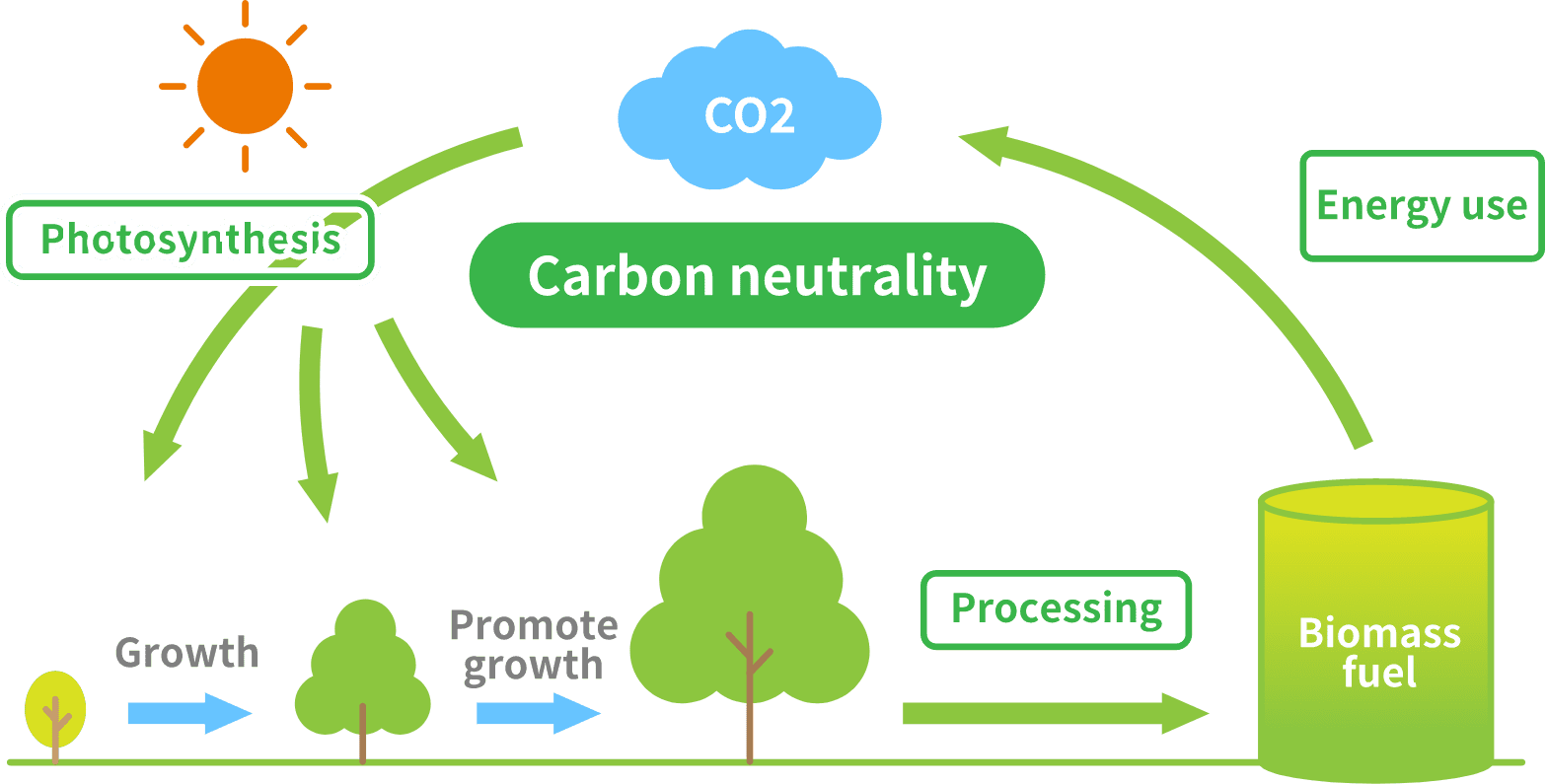What is renewable energy?ENVIRONMENT
Numerous countries and companies around the world are currently promoting the introduction of renewable energy at a rapid pace for the realization of a sustainable society in the future. Solar power, wind power, geothermal power, hydroelectric power and biomass are important power sources to advance zero carbon society. Let us examine its necessity and challenges.
Renewable energy, a key energy source to realizing zero carbon society.
Renewable energy is an energy from natural sources with little impact on the environment. Major types include solar, wind, hydroelectric, geothermal, solar thermal, and biomass energy.

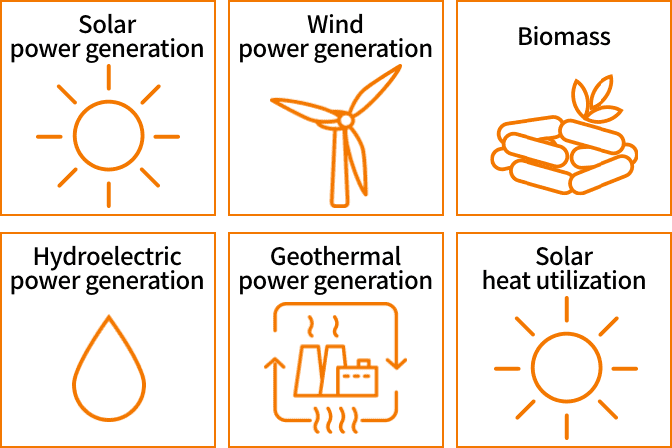
Fossil fuels such as oil, coal, and natural gas are not only limited resources but also emit CO2 which causes global warming during power generation. In contrast, renewable energy exist everywhere in the natural world, do not emit CO2, and will not run dry.
Renewable energy is also essential from the perspective of increasing Japan's energy self-sufficiency. Japan’s energy resource is poor, and 80% of its resource comes from fossil fuels such as oil, coal, and natural gas, most of which are imported from overseas. Spreading renewable energy that can be procured at a variety of locations will boost our energy self-sufficiency rate and bring about sustainable development to our society.
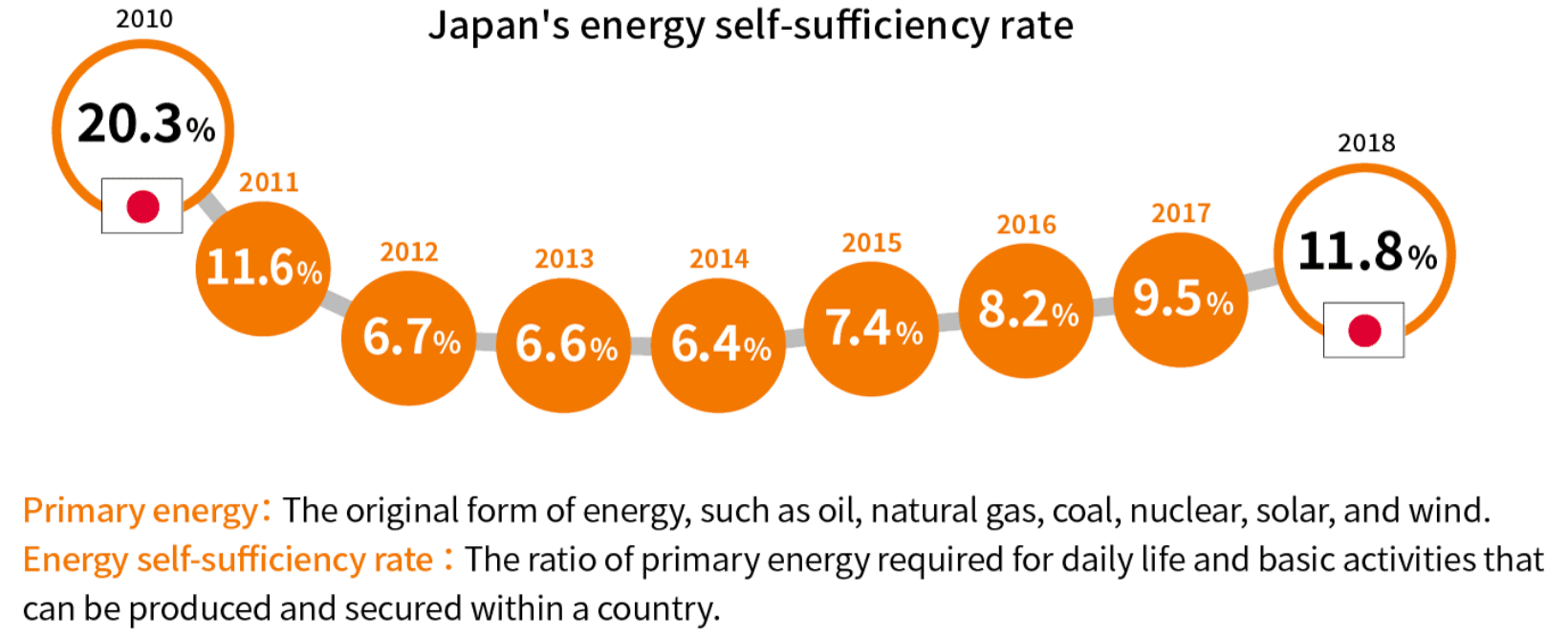
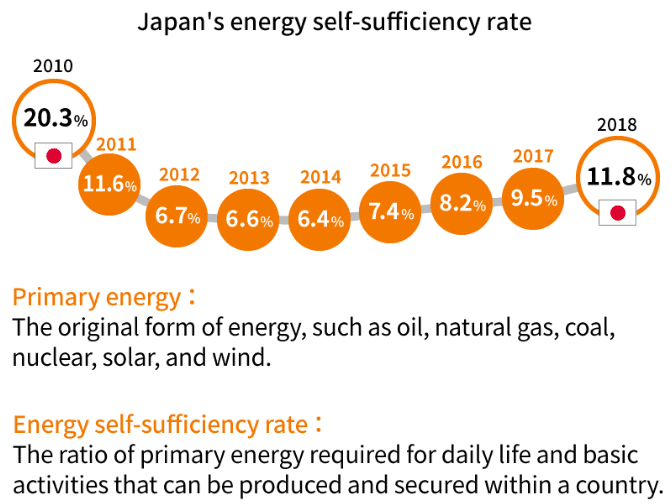
Source: Agency for Natural Resources and Energy, METI, "2020 - Understanding the current energy situation in Japan (Part 1)"
Advantages and challenges of renewable energy
One of the major advantages of renewable energy is that its type can be chosen according to the characteristics of the region, such as climate, climatic conditions and other local features. For example, solar energy is promising for areas with long hours of sunshine, hydroelectric energy for areas with abundant water supply, and geothermal power for volcanic zones. Likewise, biomass energy has the advantage of effectively utilizing biological resources such as lumber waste, waste cooking oil, and livestock waste, thereby reducing garbage and creating jobs related to reuse and transportation. In other words, it contributes to local revitalization and economic development.
On the other hand, we still have challenges such as reducing management costs and improving energy conversion efficiency. For example, solar and wind power are easily affected by environmental factors like weather and seasons, which makes it difficult to ensure stable power generation. It is also necessary to promote understanding among local officials and residents.
The share of renewable energy in Japan's power generation is about 16%, one of the lowest among the major advanced countries. We erex believe it is our mission to increase this proportion through the spread of biomass power generation in order to realize a decarbonized society in Japan.
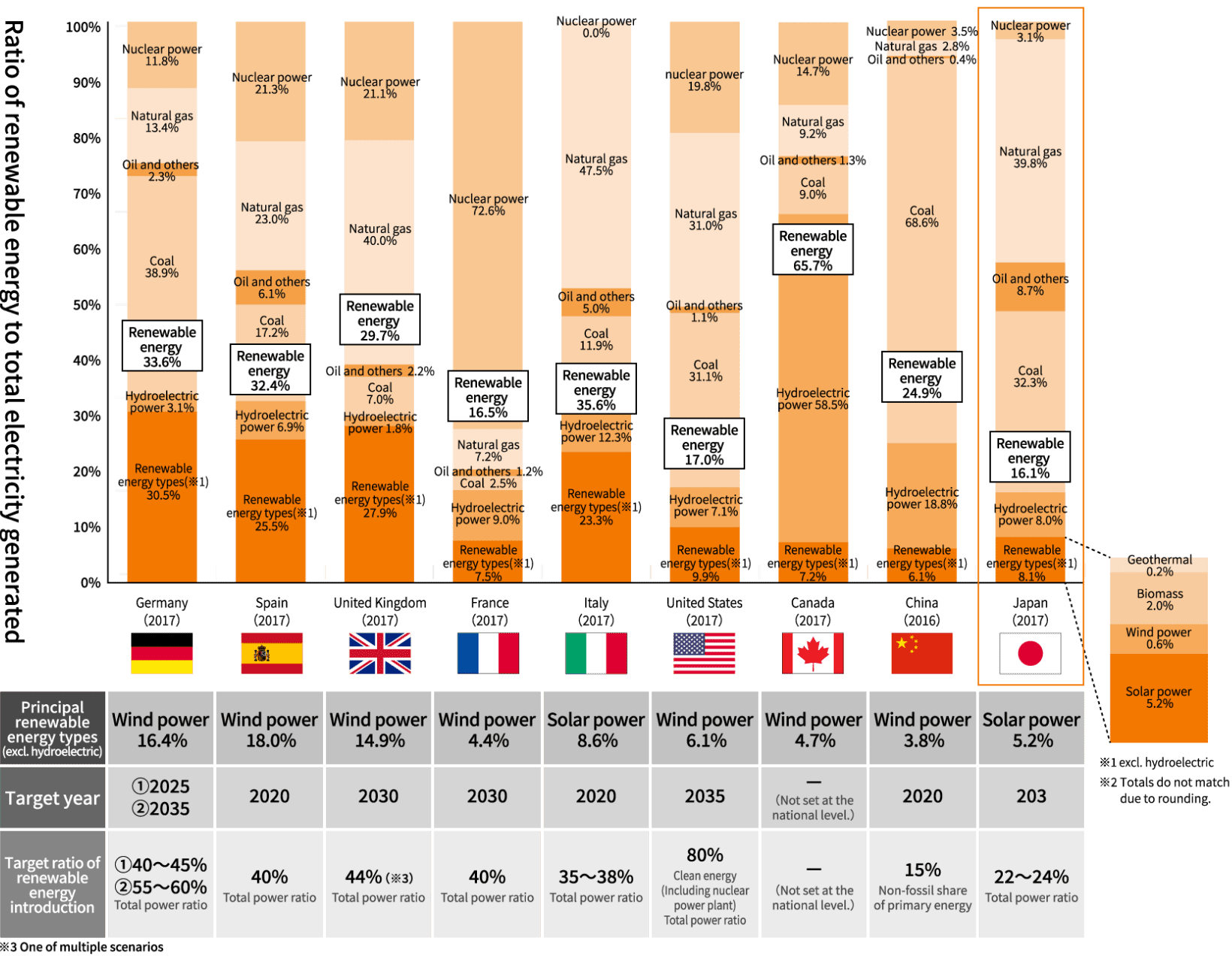
Source: Agency for Natural Resources and Energy, METI, "なっとく!再生可能エネルギー"(only Japanese)
Click here to enlarge the above figure.
Contributing to global warming prevention and zero carbon society through biomass power generation
Biomass, the only renewable energy source that does not depend on the natural environment uses organic matter obtained from plants, animals, and other living organisms as an energy source. Generating power by combusting that is referred to as "biomass power generation."
Biomass power generation does not increase CO2 in the atmosphere if plant-derived fuel is used. This is due to the fact that plant-derived fuels absorb CO2 through photosynthesis during the growth stage so even if it emits CO2 during combustion, the total CO2 emission yields a net zero, which as a consequence prevents the increase of atmospheric CO2. This concept is called "carbon neutrality." Lifecycle GHG (Green House Gas) emissions from erex’s biomass power generation has been confirmed to reduce more than 70% compared to coal-fired power generation. By taking advantage of this characteristic, erex will contribute to the prevention of global warming and the realization of a decarbonized society.
